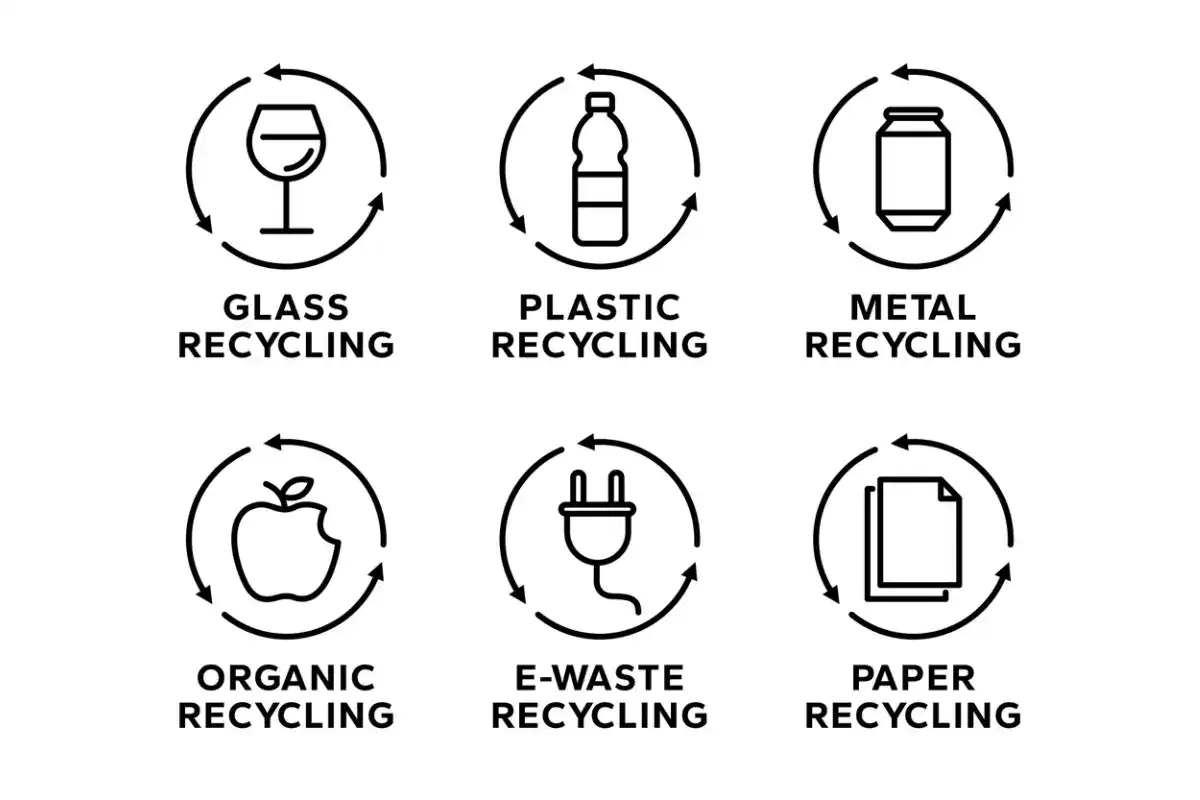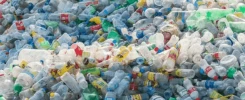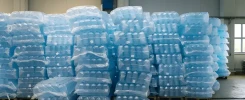The world is turning to more sustainable lifestyle and recycled materials become the centre of this process. Global warming and the pollution are increasing issues yet recycling is a simple process to save our planet.
Recycling transforms the garbage into useful new products. It conserves energy eliminates pollution and prevents overflow of landfills. Recycled materials we use contribute to preserving nature and the UAE objective of having a cleaner greener future by 2040 with a Zero Waste.
The knowledge of the presence of recycled materials and their utilization has a huge impact. Recycling is a major concern in Dubai where the population and consumption is on the increase. The city is striving to promote home and school recycling and other businesses in an effort to create a more sustainable community.
Understanding Recycled Materials and Their Global Importance
Recycled materials are used items that are processed again to make new products instead of being thrown away. Recycling saves energy, protects natural resources, and cuts down pollution. For example, recycling aluminum uses 95% less energy than making new aluminum from raw materials. In the same way, paper recycling in Dubai helps save trees and reduces landfill waste.
The United Nations reports that only 9% of all plastic ever produced has been recycled. This number shows how much room we have to improve our recycling habits. By practicing simple recycling steps at home or work, we can turn waste into useful materials that can be used again.
Dubai is a leading example in the Middle East when it comes to recycling. The city has built many recycling centers and launched awareness programs to help residents recycle correctly. These efforts inspire people to reduce waste and protect the environment for future generations.
The Growing Need for Recycling in Dubai and the UAE
Dubai creates thousands of tonnes of waste every day but much of it can be reused through smart recycling efforts. The UAE government has started programs that ask people to separate recyclables from other waste before throwing it away. This small step helps recycling centers work faster and more effectively.
Under the UAE Vision 2030 plan, many recycling companies in Dubai are now finding new ways to recycle materials. These projects include plastic recycling, glass recycling, paper recycling, and wood recycling. Special focus is also given to reducing industrial waste, which is a significant part of the country’s sustainability goal.
Across the UAE, schools, companies and communities are joining hands to support recycled materials projects. These programs turn waste into valuable and creative resources for learning and daily use. Together, these actions protect the environment and help people understand the importance of living sustainably.
Types of Recycled Materials
To recycle well, you should know the main types of recycled materials. Each material is collected, sorted, and reused in a different way. In Dubai, recycling covers plastic, glass, paper, wood and metal. These items are cleaned and processed to make new products instead of ending up in landfills.
Plastic Recycling in Dubai
Plastic recycling in Dubai is vital for protecting the environment. It is one of the most significant global problems. It is used in bottles, bags, packaging and containers but it takes hundreds of years to break down.
Common Types of Recyclable Plastics
| Plastic Type | Symbol | Common Uses | Recycling Potential |
| PET (Polyethylene Terephthalate) | ♳ | Water bottles, food containers | High |
| HDPE (High-Density Polyethylene) | ♴ | Milk jugs, detergent bottles | High |
| PVC (Polyvinyl Chloride) | ♵ | Pipes, window frames | Medium |
| LDPE (Low-Density Polyethylene) | ♶ | Plastic bags, wraps | Moderate |
| PP (Polypropylene) | ♷ | Bottle caps, straws | High |
| PS (Polystyrene) | ♸ | Disposable cutlery, foam cups | Low |
Recycling plastic means collecting, washing and processing it into new raw materials. These materials are used again to make new items instead of creating more waste.
Dubai has added smart bins and modern recycling centers to help people recycle easily. Recycled plastic is now used to make benches, road materials and car parts. The government also encourages everyone to avoid single-use plastics and choose reusable options instead.
Many community projects in Dubai turn plastic waste into art, furniture and building materials. These efforts show how recycling and creativity can come together to make the city cleaner and greener.
Glass Recycling in Dubai
Glass recycling in Dubai plays a major role in saving energy and resources. Unlike plastic, glass can be recycled endlessly without losing its quality. Most bottles and jars can be melted and shaped again into new containers.
Dubai has set up special bins for glass waste at recycling centers, making it easy for residents to take part. However, not all glass can be recycled. Items such as mirrors, ceramics and light bulbs need special handling and should not be placed in regular glass bins.
By spreading awareness about proper sorting, glass recycling in Dubai ensures that reusable glass goes to the right facilities.
Recycled glass is also used to make construction materials, decorative tiles, and eco-friendly packaging. This process helps cut carbon emissions and supports greener industries across the UAE.
Wood Recycling and Sustainable Reuse
Wood recycling in Dubai is becoming a key part of the city’s green efforts. Many industries including construction and furniture making, are now choosing to reuse old wood instead of throwing it away. Wood from old furniture, pallets and building sites can be cleaned, treated and turned into new, functional materials. This process saves trees and protects natural forests.
Recycled wood is often made into flooring, composite boards or creative furniture. Many recycled materials projects in Dubai also use reclaimed wood to craft home décor items and artistic pieces. Some wood waste is turned into biofuel, which helps cut down the use of fossil fuels.
By supporting wood recycling Dubai takes another strong step toward sustainability. The city promotes a circular economy where materials are used again and again instead of being wasted. This simple idea helps save resources and build a cleaner greener future.
Paper Recycling in Dubai
Paper recycling in Dubai is now a key part of daily life in homes, schools, and offices. Every day, thousands of sheets, magazines, and boxes are thrown away. By recycling paper, we can save trees, use less water, and cut carbon emissions from paper production.
Across Dubai, you’ll find paper recycling bins in most neighborhoods and workplaces. After collection, the paper is shredded, soaked and turned into pulp. This pulp is then processed into new paper items like notebooks, envelopes and packaging boxes.
Many schools and community programs run recycled materials projects to show how paper can be reused in creative ways. These activities help people understand how simple recycling habits can make a big difference for the planet.
Metal Recycling and Its Industrial Importance
Metal recycling in Dubai plays a significant role in building a clean and green future. Metals like aluminum, steel and copper can be reused many times without losing their strength or quality. Recycling them helps save natural resources and uses far less energy than mining new metal.
In Dubai, metal recycling is a key part of the industrial sector. Old machinery, building scraps and metal waste are collected, melted and turned into new materials. These are used in construction, car manufacturing, and other industries across the UAE.
By focusing on metal recycling Dubai supports a circular economy that reduces carbon emissions and protects the environment. This simple process keeps materials in use longer and helps create a sustainable future for everyone.
Recycled Materials Projects and Creative Ideas
Recycled materials projects are a fun and straightforward way to care for the environment. In Dubai, many schools and communities use these projects to turn everyday waste into practical or creative items. People make bottle planters, glass decorations and wood crafts, showing that recycling can be both smart and enjoyable.
Popular Recycled Materials Project Ideas
| Material Type | Project Idea | Description |
| Plastic Bottles | Hanging Gardens | Cut and reuse plastic bottles as planters for vertical gardens |
| Glass Jars | Decorative Lights | Turn old jars into eco-friendly lamps using LED bulbs |
| Wood | Furniture Restoration | Use reclaimed wood to craft benches, tables, or wall art |
| Paper | DIY Notebooks | Bind recycled paper sheets to make eco-friendly notebooks |
| Metal | Sculptures | Craft artistic pieces using scrap metal |
Local recycling groups and companies run workshops and contests to share new ideas. These activities help people learn how recycling saves energy and reduces waste. They also bring communities together and create new business opportunities in green industries.
Architects and designers in Dubai now use recycled materials to make eco-friendly buildings, furniture, and art pieces. This trend reflects Dubai’s growing focus on sustainable living and creative innovation.
Non-Recyclable Materials and Responsible Disposal
Not everything can turn into recycled materials. Some waste, like ceramics, mirrors, greasy plastics, fabrics and sticky products, cannot be recycled. When these items mix with recyclables, they cause damage and slow down the recycling process.
Dubai encourages people to handle non-recyclable materials the right way. The city provides special bins and centers for safe disposal. Public campaigns also help residents learn what belongs in each bin and how to avoid mixing waste.
By following these simple steps everyone can help keep Dubai clean and support its goal of a greener more sustainable future.
The Role of Recycling Centers and Companies in Dubai
Recycling centers in Dubai are key to keeping the city clean and green. These centers collect, sort and recycle waste to protect the environment. Both government and private companies run them to make recycling easier for everyone.
Top companies such as Green colour code and Able recycling use advanced systems to handle plastic, glass, metal, paper and wood. Their work helps turn old materials into new, valuable products.
People in Dubai can recycle easily using bins placed in homes, malls, and offices. This simple setup supports plastic recycling in Dubai and paper recycling in Dubai every day.
The government also gives rewards and support to businesses that use eco-friendly packaging and reduce waste. These actions bring Dubai closer to its goal of a sustainable, zero-waste future.
How Recycling Supports Sustainable Development
Recycling helps Dubai grow in a clean and green way. It keeps waste out of landfills, saves energy, and protects nature. By using recycled materials, we can reuse items instead of throwing them away.
Recycled materials projects also bring new ideas to life. They inspire people to design, build, and learn in creative ways. Schools, homes and companies all join these projects to make a real difference.
When everyone recycles, Dubai becomes a healthier and happier city. Each small action helps protect the planet and supports a better future for all.
Challenges and the Future of Recycling in Dubai
Even with great progress, recycling in Dubai still faces some challenges. Many people are not sure how to separate recyclable and non recyclable waste. Others forget to recycle or don’t know where to find the correct bins.
The good news is that the future of recycling in Dubai looks bright. The city is using innovative technology and AI-based sorting systems to make recycling easier and faster. Strong government policies also support this change toward a zero-waste future.
Schools and community programs now teach both kids and adults about plastic recycling in Dubai, glass recycling in Dubai, and other eco-friendly habits.
Dubai’s dream of becoming a world leader in environmental innovation depends on teamwork. The government, recycling companies and residents must all work together to create a cleaner and greener city.
Final Thoughts
A sustainable future begins with small steps. Sorting waste and joining recycling projects in Dubai make a real difference. Supporting plastic, glass, wood, and paper recycling in Dubai helps protect the planet.
Each recycled item saves energy, reduces pollution, and keeps Dubai clean. By working with recycling companies in Dubai, everyone can help build a greener city. Simple choices today create a cleaner and brighter tomorrow for all.
FAQs About Recycled Materials and Recycling in Dubai
Q1: What are the most common recycled materials in Dubai?
The most commonly recycled materials include plastic, glass, paper, wood, and metals like aluminum and steel. These are collected from homes, offices, and recycling bins throughout the city.
Q2: How can I start a recycling project at home or school?
Begin by collecting recyclable items such as bottles, paper, and cans. Use them for recycled materials projects, like planters, crafts, or storage boxes. Invite family or classmates to join and make it a fun, educational activity.
Q3: Where can I recycle plastic in Dubai?
You can put plastic waste in community recycling bins or take it to local recycling centers. Many malls and residential areas also provide bins specifically for plastic recycling in Dubai.
Q4: Can wood be recycled?
Yes. Wood recycling allows old furniture, pallets, and scrap wood to be reused in construction, décor, or converted into bioenergy. Make sure the wood is clean and free of paint or chemicals before recycling.
Q5: What are the benefits of recycling in Dubai?
Recycling saves energy, reduces landfill waste, and lowers carbon emissions. It also supports Dubai’s 2040 sustainability vision by promoting the responsible use of resources.
Q6: What items cannot be recycled in Dubai?
Non-recyclable items include ceramics, mirrors, contaminated plastics, textiles, and adhesive products. Dispose of these at designated waste centers to avoid contaminating recyclable materials.
Q7: Are there recycling rewards or incentives in Dubai?
Yes. Some recycling companies and community programs offer points or rewards for regular recycling. Specific programs even give discounts or eco-points that can be redeemed at partner stores.
Q8: How do recycling companies in Dubai process waste?
Recycling centers collect, sort, and process waste using advanced systems. Each material—plastic, glass, metal or paper—is treated differently and sent to factories to be reused or transformed into new products.
Q9: What role do residents play in Dubai’s recycling system?
Residents are essential. By separating waste at home and using recycling bins, they help prevent contamination and ensure recyclable materials reach the proper facilities. Small actions create significant environmental benefits.
Q10: Can electronic waste (e-waste) be recycled in Dubai?
Yes. Dubai has specialized e-waste recycling centers that collect phones, laptops, batteries and other electronics. Companies like Enviroserve safely dispose of and recycle these items.



